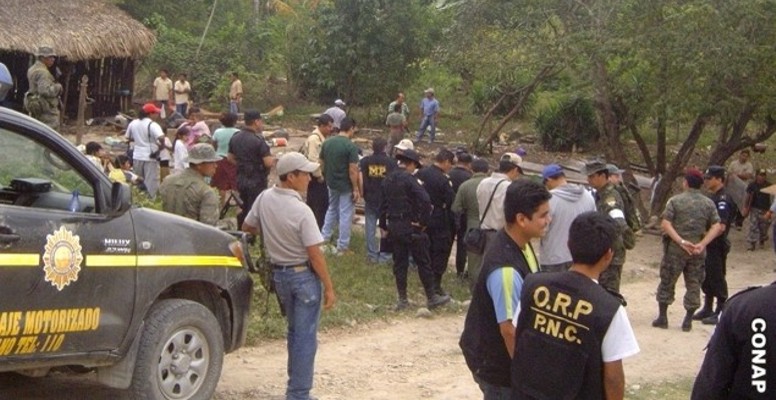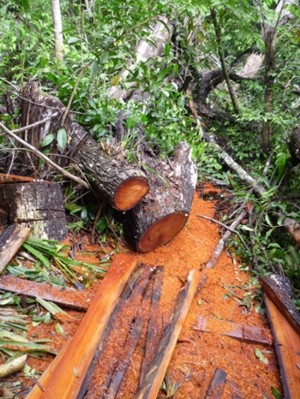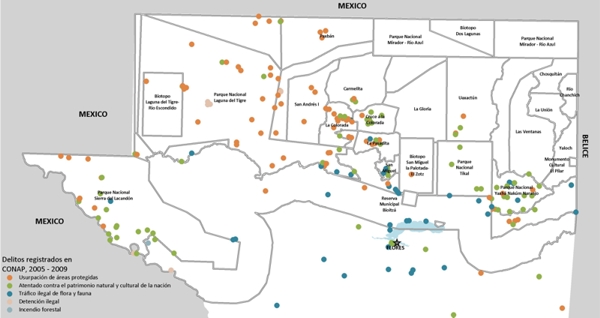 |
|
An operation with combined forces, MBR, 2010
|
 |
|
Illegally-harvested wood, La Corona, Laguna del Tigre National Park
|
Governance is the pivotal issue that will determine the outcome of conservation in the MBR over the long term, as well as the reserve’s potential for realizing its parallel objectives of conservation and development of local populations. Increasing local government and civil society capacity for creating capable, responsible, and transparent organizations, able to apply the law and manage natural and cultural resources, is the shortest path towards governability.
Significant progress has been made in governance over the past few years, with measures that in some cases are completely unprecedented in the MBR. Government entities responsible for the territorial control of the MBR have taken keys steps to recover land that was on the edge of irreversible problems, including lost territory, deforestation, forest fires, and environmental impunity. Notable measures in this vein include the establishment of five new control posts that regulate access to the heart of the reserve, an increase in inter-institutional patrols, and the recovery of nearly 100,000 hectares of illegally colonized land, among others.
 |
|
Crimes in the MBR, recorded by CONAP, 2005-2009
|
In terms of local civil society capacity building, recent advances among community organizations responsible for managing natural resources include: the establishment of distance education high schools (telesecundarias) in the communities of Carmelita, Uaxactún, and Paso Caballos; the equipping of nine Community Committees for Control and Protection; the support of the Community Development Councils in the organization and management of projects; and the support of select organizations for improving local administrative capacity.
Finally, in terms of strengthening connections between civil society and the government, specific measures have included supporting the Multi-Sectoral Roundtable for the Natural and Cultural Area of Mirador-Rio Azul, and the Environmental Justice Forum, two fora that create spaces for constructive dialogue around themes related to the MBR.
Although the achievements to date have been many, and in some cases unprecedented, it must be recognized that if the same level of effort is not maintained in the future, much of what has been gained could quickly and easily be lost again. It is therefore fundamental to point out the necessity of maintaining or increasing the current level of focus, investment, and dedication of human resources in a fight that will continue being difficult, and which will surely be long.